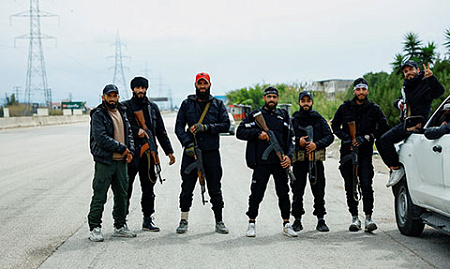
Syria’s transitional government has deployed special forces to the southern province of Suweida after violent clashes between the local Druze community and Bedouin tribes left at least 30 people dead. The conflict, reportedly ignited by a roadside robbery of a Druze merchant, presents a critical test for the new leadership in Damascus as it struggles to impose order and unify a fractured nation.
This eruption of violence comes at a highly sensitive diplomatic moment. The government, led by former rebel commander Ahmed al-Sharaa, is engaged in delicate, behind-the-scenes negotiations to normalize relations with Israel, which has long positioned itself as a protector of the Druze minority. The unrest in Suweida directly threatens to complicate these talks and undermine the new government’s claims of ensuring stability.
The Syrian Interior Ministry has officially framed the deployment as an operation to restore security in a region suffering from a “security vacuum.” It has urged the local population to cooperate with the authorities to re-establish law and order, while Druze community leaders have demanded Damascus take decisive action to secure the vital Damascus-Suweida highway and stop the attacks.
This incident is a grim reminder of the sectarian fault lines running through post-Assad Syria. It follows a brutal episode of violence in March, when forces loyal to the transitional government were implicated in the killing of at least 1,500 Alawites, the minority sect of former President Bashar al-Assad. That massacre, investigated by Reuters and carried out by factions now part of the new Syrian army, has placed the government under intense international scrutiny to protect all of the country’s ethnic and religious minorities.
The protection of these communities is now a key condition set by the international community for Damascus’s political rehabilitation. The current crisis directly impacts ongoing confidential talks between Syrian and Israeli officials, reportedly held in Azerbaijan. While Syria demands the withdrawal of Israeli troops who entered its territory after Assad’s fall in December, one of Israel’s stated justifications for its presence is the safeguarding of minorities like the Druze, who have a significant population within Israel itself.
Adding another layer of complexity is the role of local Druze leader Hikmat al-Hijri, who holds significant sway over armed factions in the region. According to regional analysts, al-Hijri has a history of shifting allegiances, having previously maintained ties with the Assad regime’s security services. While he portrays his actions as defending Druze interests, there is speculation he is leveraging Israel’s strategic concerns to advance his own agenda, which may have been linked to the former regime’s lucrative Captagon trade.
In the current fragile political climate, al-Hijri’s actions, particularly any perceived alignment with Israel, are seen by the central government as a potential separatist challenge. His mobilization of armed groups, while ostensibly for community defense, risks further destabilizing the region and undermining the new government’s fragile efforts to assert its authority across the entire country.
